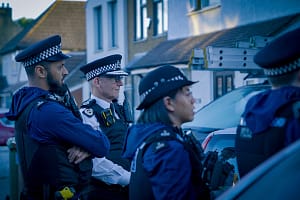Myths about Muslims busted
Unless you’ve been living under a rock you’ll have seen all the Islamophobic abuse Muslims have been getting for what happened in Brussels.
Case in point this genius on Twitter who boasted he walked up to a Muslim woman in Croydon and asked her to account for the terror attacks in Brussels yesterday.
UNBELIEVABLE:
You’re an idiot @MatthewDoyle31 – part of the problems of our world not part of the solution. pic.twitter.com/UnJHcDDKQh— Otto English (@Otto_English) March 23, 2016
Blaming a whole religion for a terrorist attack is pointless, senseless and thoughtless yet anti-Muslim hate crimes have more than tripled since the Paris attacks.
In December, ITV published figures from Metropolitan Police which showed that 76 Islamophobic offences were recorded between November 17 and 24.
We need more people like John in the world who shouted the phrase “You ain’t no Muslim, bruv” at a suspected terrorist during a stabbing at a tube station.
To all those berating Muslims for terrorism in the world, here are six myths about Muslims for your suspicious eyes:
1. MYTH: Muslims carry out most terrorist attacks in the EU
Did you know: Less than 2% of terrorist attacks in the EU are religiously motivated?
These stats by Europoll will change the way you look at Muslims:
In 2009, only one of the 294 terrorist attacks were related to Islamist militancy.
In 2010, three of the 249 terrorist attacks were “Islamist”.
In 2011, none of the 174 terrorist attacks in EU countries were “affiliated or inspired” by terrorist organisations.
In 2012, six off the 219 terrorist attacks in EU countrie were “religiously motivated”.
In 2013, two out of the 152 terrorist attacks in the EU were “religiously motivated”.
2. MYTH: Muslims carry out most terrorist attacks in the US
We need only one stat to shoot this myth to pieces.
Figures from the FBI have shown that 94% of terrorist attacks carried out in the United States from 1980 to 2005 have been by non-Muslims.
3. MYTH: Islam and terrorism is the same thing
No it’s not. Take a look at a few tenets of Islam:
Don’t cut a tree
Don’t kill a woman
Don’t destroy a temple or a church
Don’t enforce Islam
If you didn’t study Islam, don’t say anything about it. It doesn’t teach terrorism, ,it-teaches peace! #StopIslampic.twitter.com/Xw7ccuGYKC
— RANI MUKERJI (@itsRaniMukerji) March 22, 2016
4. MYTH: Muslims believe in ISIS
Stop expecting Muslims to apologise for ISIS, they have nothing to do with it.
A day after the Paris attacks in November 2015, the Muslim Council of Britain (MCB) published an advert backed by 300 affiliate organisations, which “unreservedly” criticised the Paris attacks.
Also, around 3,000 Muslims marched through the centre of London in December last year in their fight against ISIS.
According to Pew Research, views of ISIS in Muslim countries are overwhelmingly negative.
5. MYTH: Muslims condone terrorist activities in the name of Islam
Nope. According to an analysis by Pew Research, Muslims in most countries denounce suicide bombing and said such acts are rarely or never justified as a means of defending Islam from its enemies.
The research found: “In most countries where the question was asked, roughly three-quarters or more Muslims reject suicide bombing and other forms of violence against civilians. And in most countries, the prevailing view is that such acts are neverjustified as a means of defending Islam from its enemies.”

6. MYTH: Muslims pose a threat to London
Wrong. According to Scotland Yard’s anti-terror chief Commander Richard Walton, Muslims in London are helping foil attacks in London.
In an interview with the Standard, Commander Richard Walton said police were receiving more calls from young Muslims as well as “mums and dads” concerned about issues their children spoke about at home.
He said: “We have had increasing support from the Muslim community, with a lot of young Muslims coming forward to help and more Muslim leaders standing up and refuting the extremist narrative.
“We still have Muslim families, mums and dads, ringing us on our anti-terrorist hotline, saying they are concerned about what they may have heard their child talking about. If we are told early enough we can intervene.”





Leave a Comment